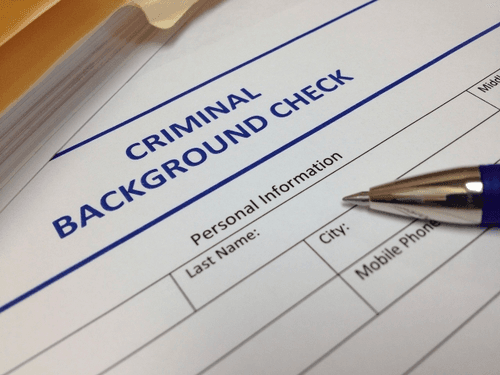History
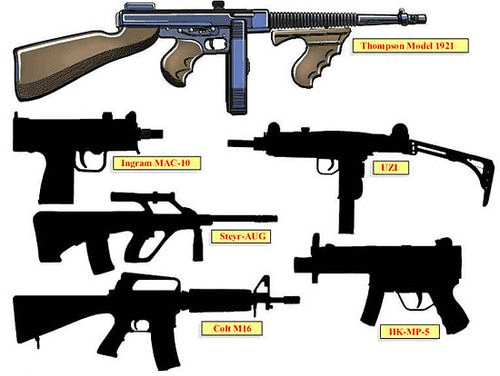
- 1934|
National Firearms Act
In response to rampant gun violence throughout the Prohibition era, Congress passed the National Firearms Act, imposing stricter gun regulations.
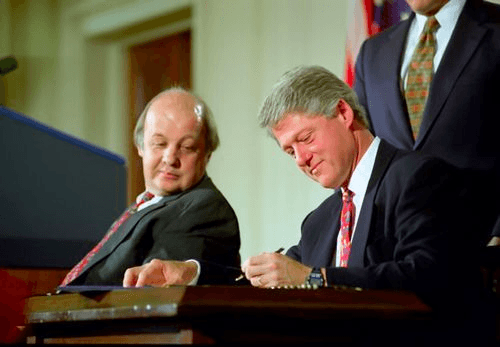
- 1993|
The Brady Handgun Violence Prevention Act
In 1993, President Clinton singed the Brady Handgun Violence Prevention Act, the most significant federal gun law reform in decades.
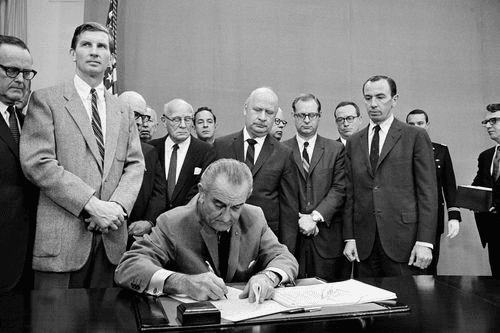
- 1968|
Gun Control Act
Following several high-profile assassinations, Congress enacted the Gun Control Act of 1968. However, it later rolled back some of these restrictions in 1986.
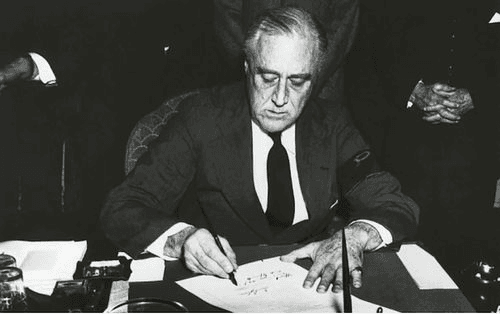
- 1938|
Federal Firearms Act
The Federal Firearms Act (FFA) created a federal licensing system for the manufacture, import, and sale of firearms.
Introduction
In the wake of a mass shooting, federal gun law reform becomes an incredibly polarized issue, with lobbyists and organizations spending millions on each side. Background checks for gun purchases are a legislative issue that consistently generates substantial controversy.
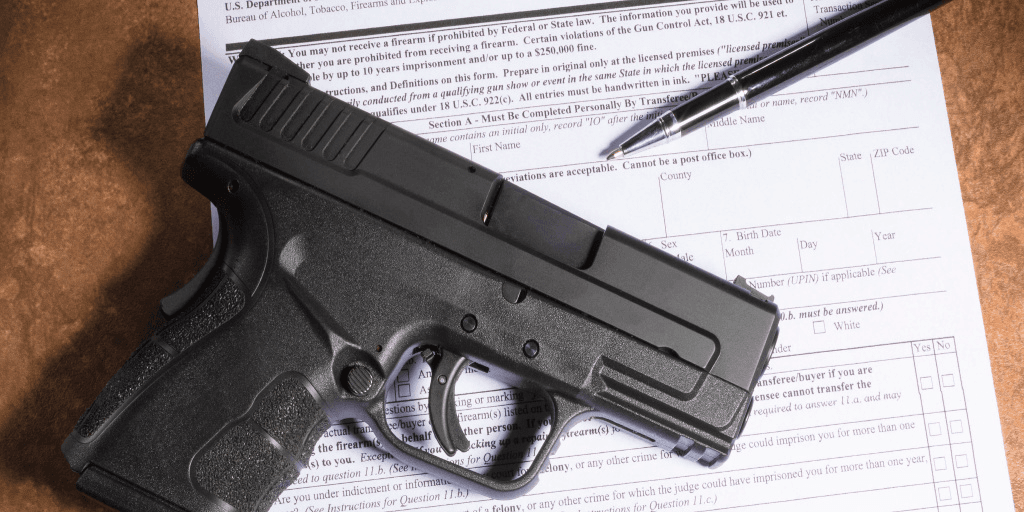
The Firearm Firm
Gun control proponents (such as Sandy Hook Promise, Giffords Law Center, and Everytown for Gun Safety) argue that background checks are vital to prevent people who should not have guns from purchasing them. However, they say that current federal law provides a loophole, as private sellers — a contentious issue in its own right — are not required to conduct background checks. Pro-control organizations argue that universal background checks would close these loopholes. On the other side, gun rights activists oppose expanding the federal background checks system, calling the move ineffective compared to state systems. They further argue that federalized background checks would restrict the rights of law-abiding gun owners. As gun violence rages on in the United States, both sides largely agree that some action is necessary. Whether that action takes the form of expanded background checks remains to be seen.
The Bureau of Alcohol, Tobacco, Firearms, and Explosives (ATF) grants federal licenses to gun manufacturers, importers, and dealers (FFL). While there are many different types of federal permits, it is relatively complex to obtain any one of them. When someone goes to an FFL to purchase a gun, federal law requires that the dealer perform a background check on the customer through the FBI’s National Instant Criminal Background Check System (NICS). The NICS database will flag “potentially prohibited persons,” giving the FBI three days to investigate. Under current law, if the FFL does not hear back from the FBI within the three-day waiting period, it can complete the sale.
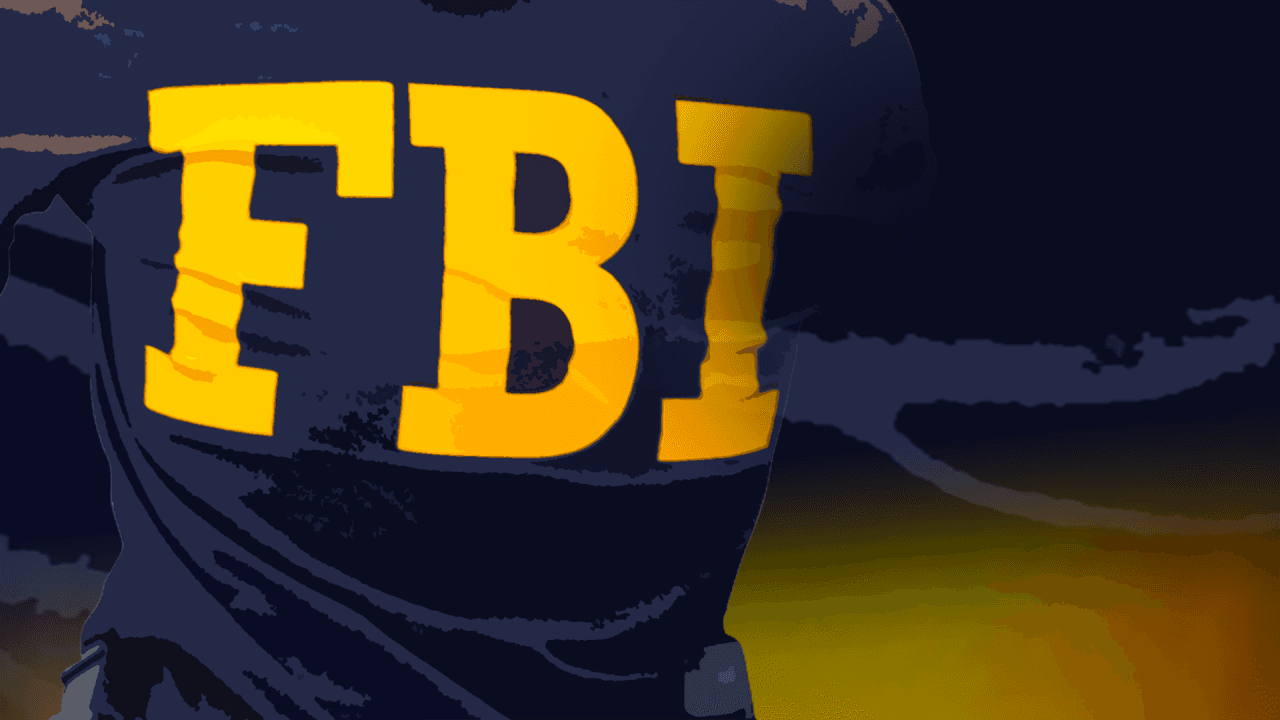
WCBD News 2
However, not every state uses the NICS’ full service, and some allow alternatives to background checks if an individual frequently purchases firearms. Additionally, federal law does not require background checks for sales between two private individuals. Although some states mandate background checks for all sales, the patchwork of state-by-state gun legislation could allow individuals to circumvent certain regulations by purchasing firearms from neighboring states. These discrepancies have prompted the Left’s calls for “universal” background checks, meaning background checks for all gun sales — including private ones. Meanwhile, gun rights groups claim that universal background checks fail to stop criminal purchases and target law-abiding citizens. In 2021, the House passed H.R. 8, the Bipartisan Background Checks Act of 2021, to prohibit a firearm transfer between private individuals unless a third-party FFL conducts a background check before the transfer. Though passed on a somewhat bipartisan basis, the Senate has not acted on the bill since the House passed it in March 2021. To bypass the filibuster, it would need substantial Republican support in the Senate, which seems unlikely anytime soon. Some Republicans argue that H.R. 8 imposes a burden on private sellers, who may sell to relatives or trusted colleagues.
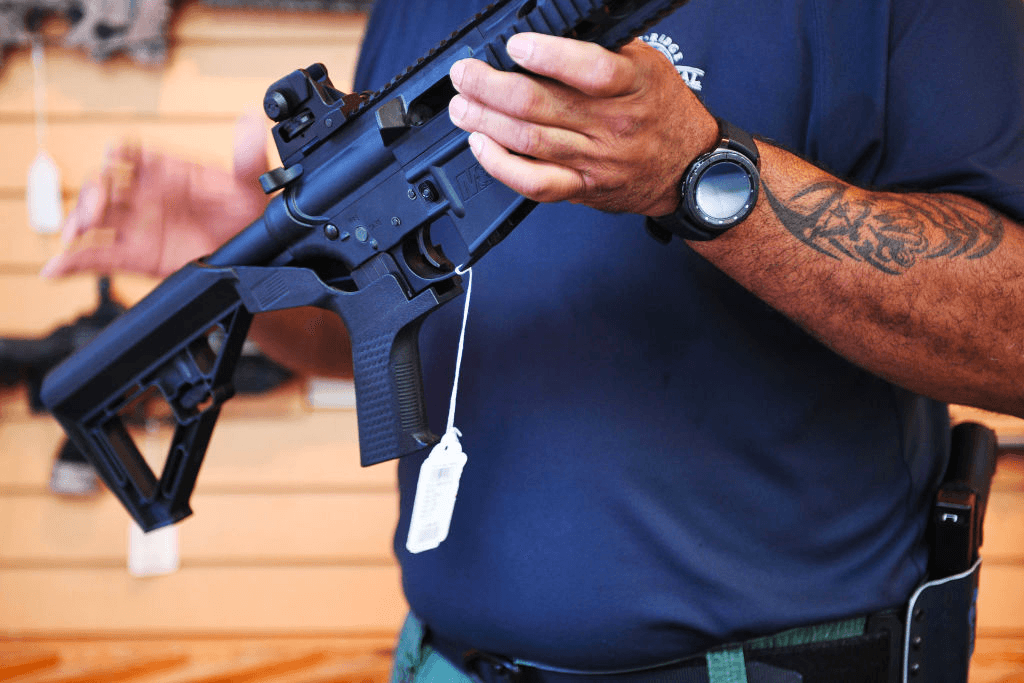
Showbiz Cheat Sheet
In addition to the private sale gap in federal law, sometimes called the “gun show loophole,” some point to two other possible flaws: the “boyfriend loophole” and the “Charleston loophole.” Current federal law prohibits most perpetrators of domestic violence from obtaining a weapon if the abuser is “a spouse, has a child with, or has lived with the victim as a spouse, parent or guardian,” a provision some argue should include abusive dating partners. In March 2021, Democratic lawmakers introduced the Protecting Domestic Violence and Stalking Victims Act to amend federal law to explicitly include former or current dating partners in this prohibited class. The bill’s path forward seems murky at best, and to date, there has been no further action to pass it. While lawmakers have not made much progress on that issue, the House passed H.R. 1446, or the Enhanced Background Checks Act of 2021, in May 2021 to address the so-called “Charleston loophole.” The name arises from the 2015 mass shooting in a historic African American church in Charleston, South Carolina. In this case, the gunman successfully purchased a gun despite a criminal record because the FBI did not finish its investigation during the three-day interim period. H.R. 1446 extends the waiting period laid out in the Brady Act to 10 days. It is unclear whether this bill has enough Republican support to pass in the Senate, as some argue the FBI should be more efficient rather than forcing citizens to wait longer. As with H.R. 8, the Senate has not taken the bill up for a vote, and it is unclear if there is a path forward for the legislation.
Discussion Questions
- Could a stricter federal background check law negatively impact gun sales?
- What is your opinion on leaving background checks up to the states?
- If the House has passed gun legislation on a bipartisan basis, why are some measures still so polarized?
Narratives
Left Narrative
The current background checks system, while helpful, does not go nearly far enough. To truly protect the American people from gun violence, Congress must pass legislation requiring universal background checks. Universal background checks are life-saving, common-sense measures and will close loopholes in federal gun laws. The public overwhelmingly supports these steps, including gun owners. The only thing that stands in the way is the gun lobby and conservative politicians who are in its pocket. These individuals have an archaic, extreme understanding of the Second Amendment and are far outside the mainstream opinion on this issue.
Right Narrative
Background checks are already conducted before purchase through the National Instant Criminal Background Check System. Federalizing background checks will introduce inefficiencies to the system, resulting in more irresponsible gun owners falling through the cracks and gaining access to guns. Many of the solutions presented are not aimed at solving the problem. How is a police officer supposed to stop a private individual from selling a firearm to a friend when a universal background check is passed? Practically, these measures do not stop criminal behavior but criminalize regular purchases by law-abiding citizens.
Bipartisan Narrative
Classroom Content
Browse videos, podcasts, news and articles from around the web about this topic. All content is tagged by bias so you can find out how people are reacting across party lines.
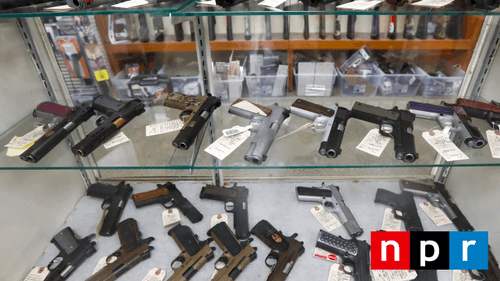
Amid Protests And Virus Fears, Firearm Background Checks Hit All-Time High
- Article •
- 6/2/2020
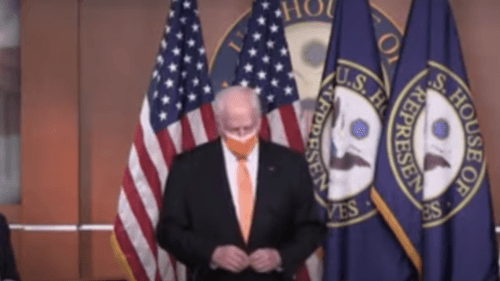
House Passes Two Gun Control Bills To Delay Gun Sales, Create National Gun Registry
- Article •
- 2/12/2021
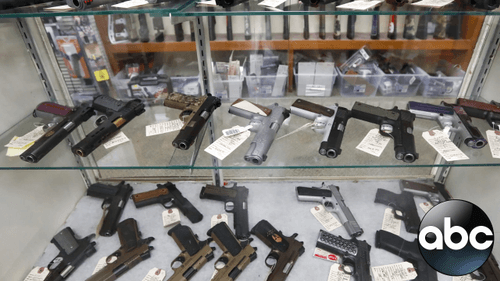
Background checks blocked a record high 300,000 gun sales
- Article •
- 5/22/2021

Gun Policy in America | The Effects of Background Checks
- Other •
- 3/22/2020
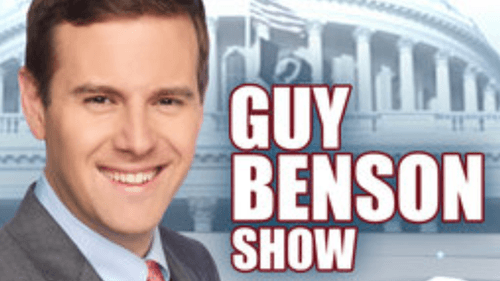
Guy Benson Show | How Much Longer? Joe Biden Now Says Americans Should Wear Masks Until ‘Everyone’ Is Vaccinated
- Podcast •
- 2/16/2021
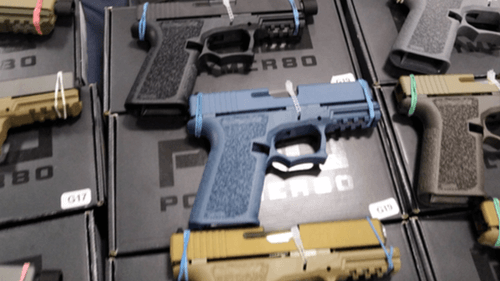
Red, Blue, and Brady | The Scary Reality of Ghost Guns
- Podcast •
- 5/9/2020
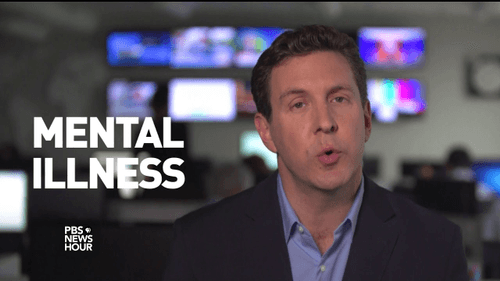
How gun background checks work — and when they don’t
- Video •
- 10/7/2017

NRA Wayne LaPierre | The Truth About Background Checks
- Video •
- 0/5/2016
